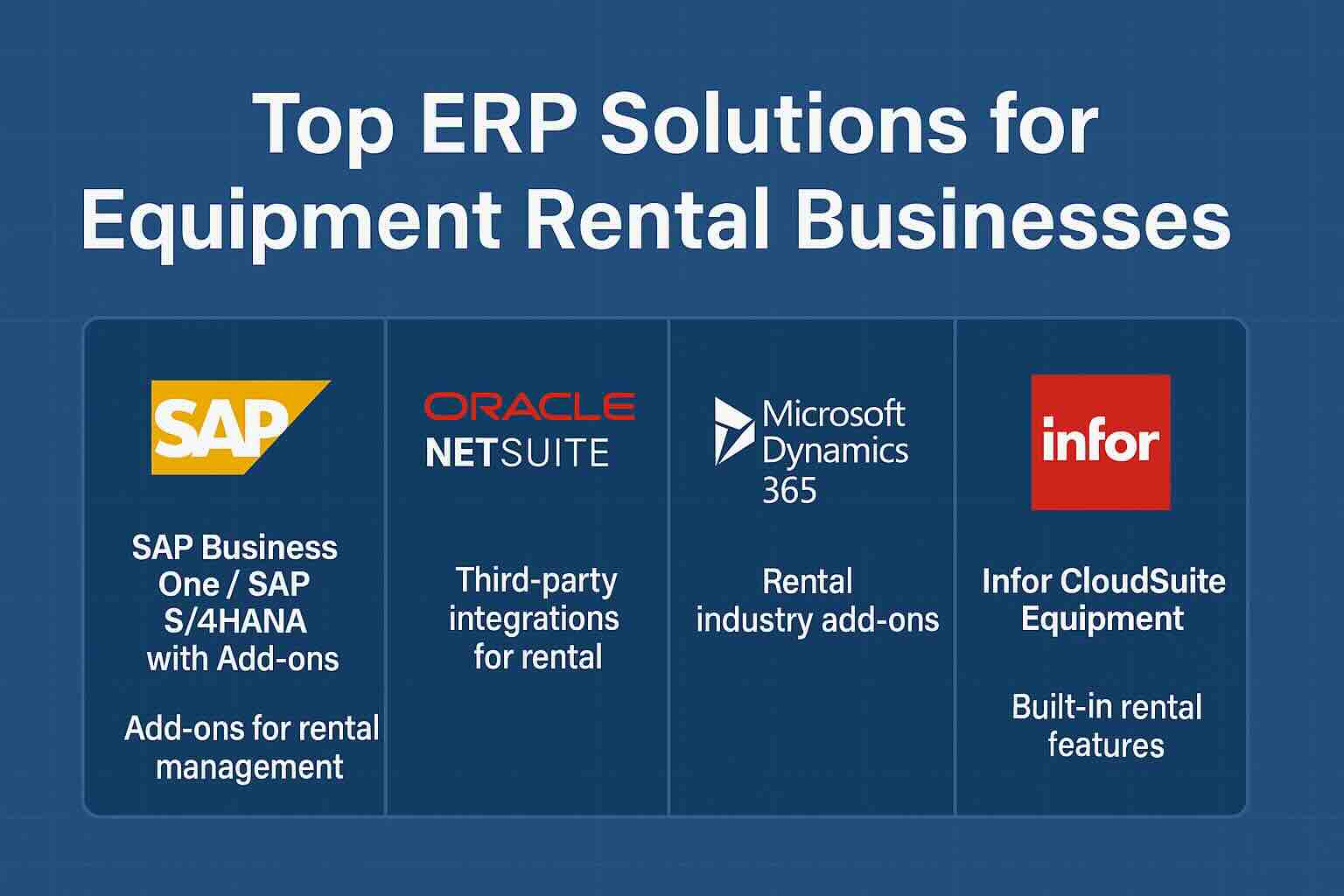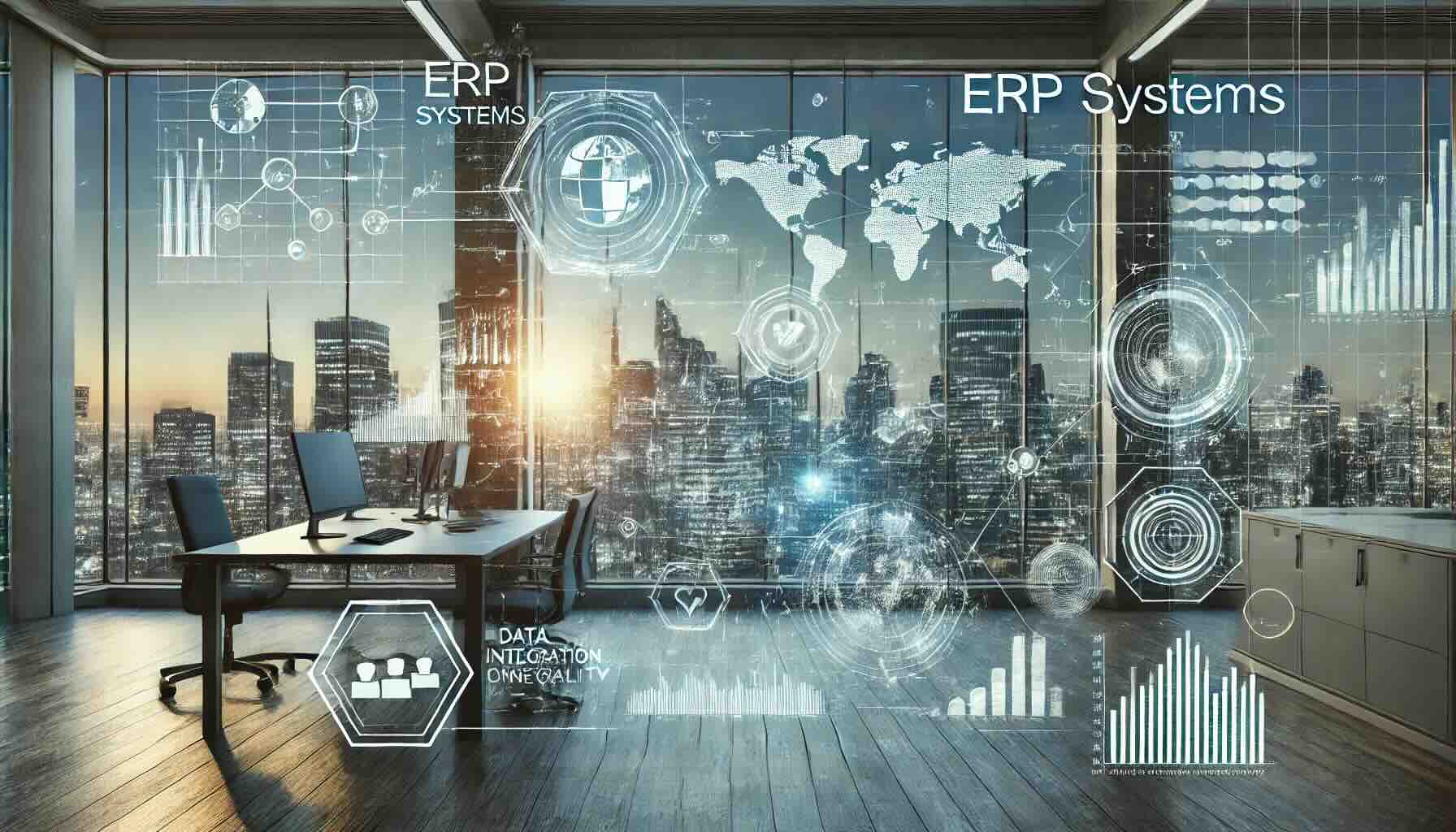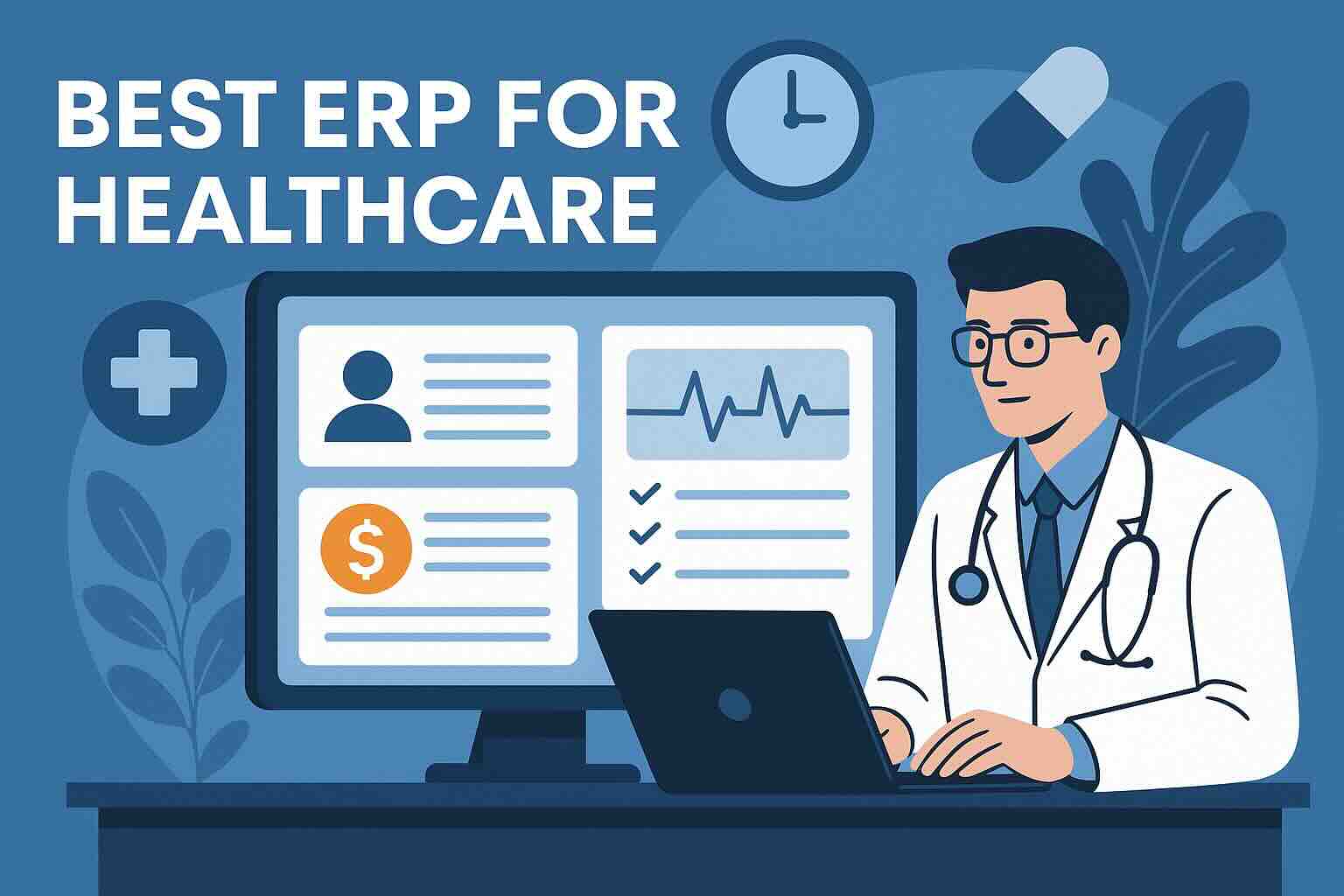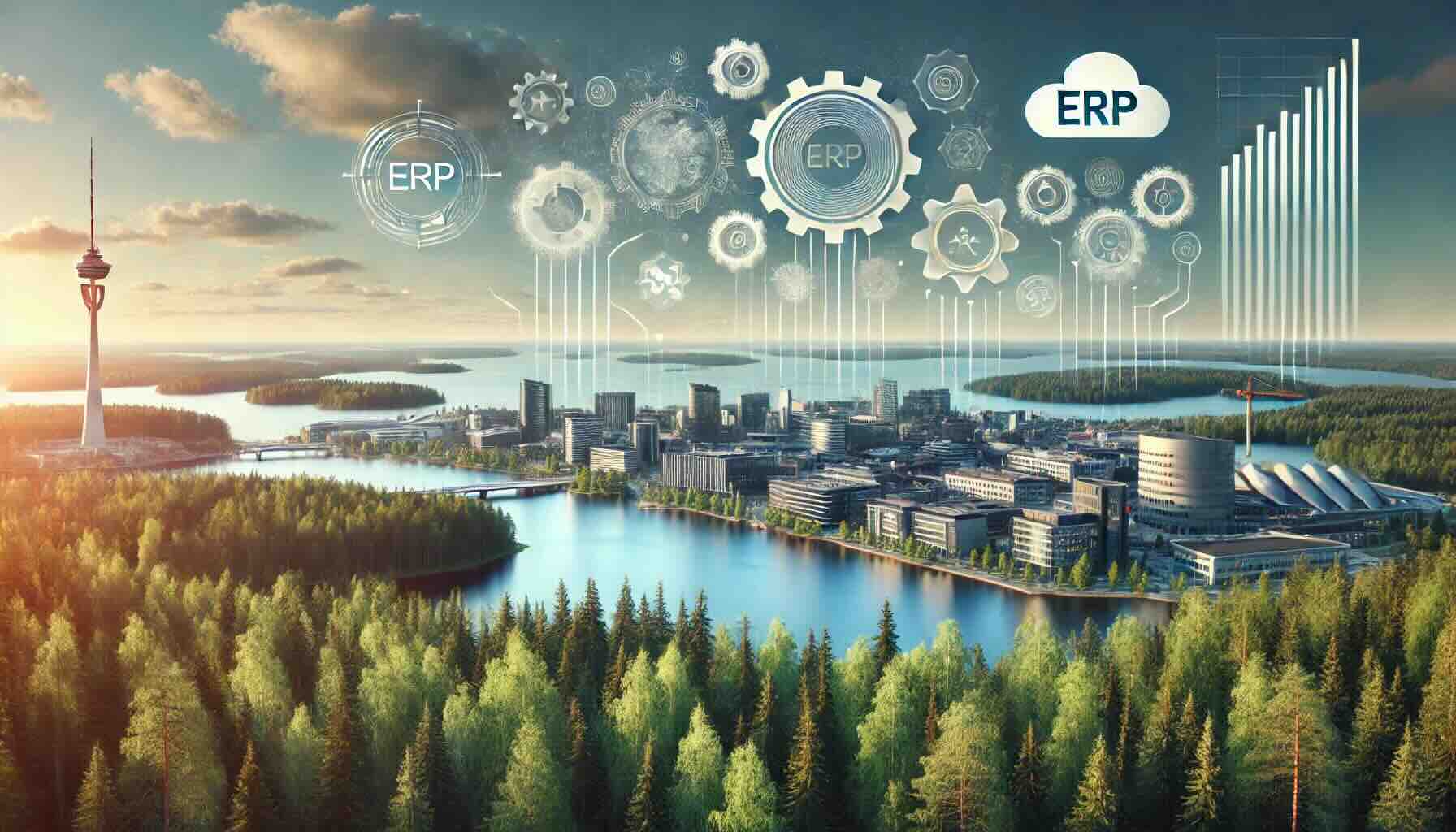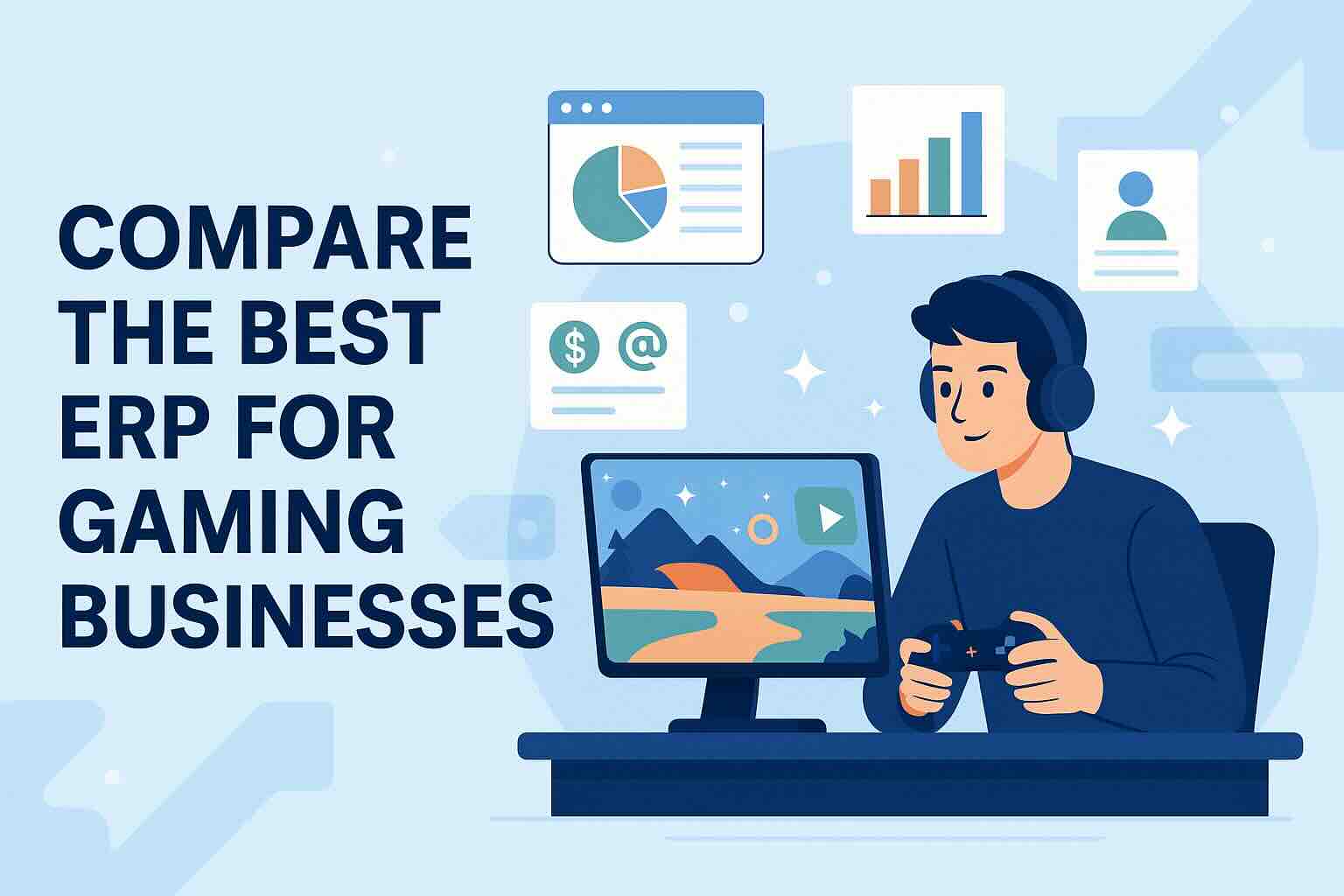ERP Software UK: Transforming Business Efficiency Across Industries

In today’s fast-paced business landscape, the need for streamlined processes, centralized data, and efficient operations is more critical than ever. Enterprise Resource Planning (ERP) software has emerged as a game-changer, helping organizations manage their resources and improve productivity. If you’re looking for ERP software in the UK, this article will guide you through its benefits, key features, and how to choose the right solution for your business.
What is ERP Software?
ERP software integrates various business functions into one unified system, such as finance, supply chain management, human resources, customer relationship management (CRM), and more. It allows different departments to access and share data in real-time, fostering collaboration and ensuring accurate decision-making.
For UK businesses, ERP software offers solutions tailored to local regulations, taxation requirements, and industry-specific needs. By adopting ERP software, businesses can replace outdated, fragmented systems with a robust platform that streamlines operations and supports growth.
Why is ERP Important for UK Businesses?
UK businesses face unique challenges, such as fluctuating market conditions, regulatory compliance, and global competition. ERP software helps overcome these challenges in several ways:
- Improved Compliance with UK Regulations
ERP software tailored to the UK market ensures compliance with local tax laws, such as VAT regulations, and industry-specific guidelines. This eliminates errors and penalties associated with manual reporting. - Enhanced Efficiency and Productivity
By automating routine tasks and consolidating data into a centralized system, ERP software reduces the time spent on manual processes. This enables employees to focus on strategic initiatives rather than administrative tasks. - Scalability for Growing Businesses
Whether you’re a small startup or a large corporation, ERP systems can scale to match your business growth. They offer modular solutions, allowing companies to add functionalities as their needs evolve. - Real-Time Data Insights
Access to real-time data allows UK businesses to make informed decisions quickly. With insights into sales trends, financial performance, and inventory levels, companies can adapt to market demands effectively.
Key Features of ERP Software
When considering ERP software in the UK, it’s essential to understand the core features that make these systems invaluable:
- Financial Management
Comprehensive financial tools help businesses manage budgets, monitor expenses, and ensure compliance with UK accounting standards. - Supply Chain Management
ERP software streamlines inventory tracking, procurement, and distribution, helping businesses optimize their supply chain operations. - Human Resource Management (HRM)
From payroll processing to employee performance tracking, ERP systems simplify HR functions, ensuring compliance with UK labor laws. - Customer Relationship Management (CRM)
Integrated CRM modules enhance customer interactions, track sales pipelines, and improve customer retention rates. - Business Analytics and Reporting
Advanced analytics tools provide visual dashboards and detailed reports, enabling businesses to identify opportunities and address challenges.
Top ERP Providers in the UK
1. SAP Business One
SAP Business One is a comprehensive ERP solution designed for small and medium-sized enterprises (SMEs). It offers robust functionalities across financials, inventory, sales, and customer management.
- Pros:
- Highly customizable to suit specific business needs.
- Real-time data insights for better decision-making.
- Strong financial management tools, including budgeting and forecasting.
- Industry-specific modules for manufacturing, retail, and wholesale businesses.
- Cons:
- High initial implementation costs, particularly for smaller businesses.
- Requires technical expertise for customization.
- Limited scalability for very large enterprises.
- Benefits:
- Provides a single source of truth for all business operations.
- Increases operational efficiency by automating processes.
- Improves inventory accuracy, reducing waste and costs.
- Best For:
- SMEs looking for an all-in-one ERP solution.
- Companies in manufacturing, distribution, and retail sectors.
To find out more about SAP Business One you can visit this link.
2. Microsoft Dynamics 365
Microsoft Dynamics 365 is a cloud-based ERP and CRM platform designed for businesses of all sizes. It integrates seamlessly with other Microsoft tools, such as Office 365 and Power BI, making it a versatile choice.
- Pros:
- Flexible, modular design that allows businesses to add functionalities as needed.
- AI-powered insights and analytics for smarter decision-making.
- Seamless integration with Microsoft’s ecosystem.
- Scalable for small, medium, and large businesses.
- Cons:
- Subscription costs can add up for businesses with extensive needs.
- Requires training to maximize its full potential.
- Customization can be complex and time-consuming.
- Benefits:
- Empowers teams with real-time collaboration tools.
- Enhances customer engagement through integrated CRM capabilities.
- Facilitates better decision-making with built-in analytics.
- Best For:
- Mid-sized to large enterprises looking for scalability.
- Businesses already using Microsoft products.
- Organizations requiring advanced analytics and CRM integration.
To find out more about Microsoft Dynamics you can visit this link.
3. NetSuite
NetSuite, a product by Oracle, is a cloud-based ERP solution designed for growing businesses. It offers modules for financial management, CRM, e-commerce, and more, all accessible through a single platform.
- Pros:
- Completely cloud-based, eliminating the need for on-premise infrastructure.
- Real-time data access and reporting.
- Scalable solution suitable for businesses with rapid growth.
- Global capabilities for multinational companies.
- Cons:
- Higher subscription costs compared to other ERP providers.
- Limited offline functionality.
- Implementation can be complex for smaller businesses.
- Benefits:
- Streamlines complex business processes across departments.
- Offers robust financial management tools.
- Enables businesses to adapt to market changes quickly.
- Best For:
- Mid-sized to large businesses experiencing rapid growth.
- Companies with global operations or e-commerce needs.
To find out more about Netsuite you can visit this link.
4. Sage 200
Sage 200 is an ERP solution tailored for small and medium-sized UK businesses, with a strong focus on financial management and compliance with local regulations.
- Pros:
- Specifically designed for the UK market, ensuring compliance with VAT and MTD.
- Easy to implement and user-friendly.
- Offers strong financial and accounting tools.
- Affordable compared to larger ERP solutions.
- Cons:
- Limited functionality for large enterprises or multinational businesses.
- Integration with third-party software may require additional effort.
- Lacks advanced features like AI-driven analytics.
- Benefits:
- Helps businesses stay compliant with UK-specific regulations.
- Simplifies payroll, invoicing, and financial reporting.
- Provides excellent customer support and training resources.
- Best For:
- UK-based SMEs seeking a cost-effective ERP solution.
- Companies prioritizing financial and compliance management.
To find out more about Sage you can visit this link.
5. Odoo
Odoo is an open-source ERP platform offering customizable modules for businesses of all sizes. Its modular approach allows businesses to choose only the functionalities they need.
- Pros:
- Open-source, making it highly customizable and affordable.
- Wide range of modules for finance, HR, CRM, inventory, and more.
- Scalable for small startups to medium-sized businesses.
- User-friendly interface and easy to set up.
- Cons:
- Open-source nature requires technical expertise for customization.
- Advanced features may require third-party extensions.
- Limited support unless you opt for the enterprise version.
- Benefits:
- Cost-effective for startups and small businesses.
- Flexible design allows businesses to scale and adapt over time.
- Provides an intuitive and clean interface for better user adoption.
- Best For:
- Startups and small businesses with limited budgets.
- Tech-savvy organizations that can leverage open-source customization.
To find out more about Odoo you can visit this link.
How to Choose the Right ERP Software
- Small Businesses/Startups: Opt for Odoo or Sage 200 if you need cost-effective solutions with essential features.
- Growing SMEs: Consider SAP Business One for industry-specific capabilities or NetSuite for its scalability.
- Large Enterprises: Microsoft Dynamics 365 is ideal for its comprehensive, modular features and advanced analytics.
- Global Companies: NetSuite is best for its ability to manage multinational operations with ease.
By evaluating your business size, industry needs, and growth plans, you can choose an ERP software that aligns with your goals and drives efficiency.
